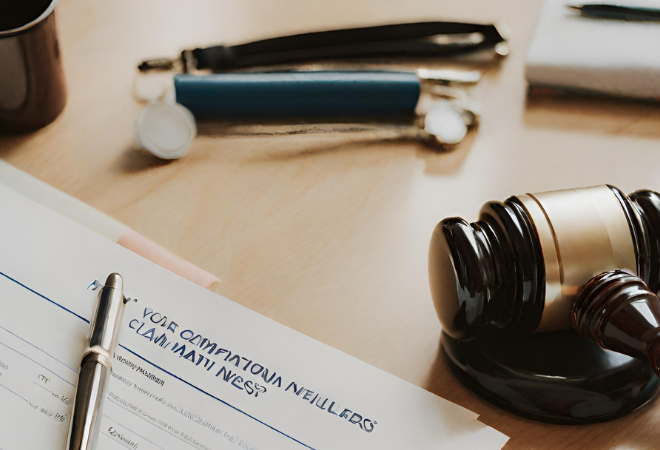
SaaS Lawyer: A Comprehensive Guide
Software as a Service (SaaS) has transformed the way businesses operate, offering cloud-based solutions that streamline processes and improve efficiency. However, navigating the legal landscape of SaaS can be complex and requires specialized knowledge. This is where a SaaS lawyer comes into play. In this article, we’ll explore the role of a SaaS lawyer, why businesses need one, and the key legal considerations in the SaaS industry.
What is a SaaS Lawyer?
A SaaS lawyer is a legal professional who specializes in the laws and regulations surrounding Software as a Service. These lawyers possess expertise in both technology and law, enabling them to address the unique challenges that SaaS companies face. Their role includes drafting and negotiating contracts, ensuring compliance with data protection regulations, and advising on intellectual property issues.
The Importance of Specialized Legal Expertise
In the rapidly evolving tech landscape, having a lawyer who understands the intricacies of SaaS is crucial. SaaS agreements often involve complex terms related to service levels, data security, and intellectual property. A SaaS lawyer ensures that these terms are clearly defined and legally sound, protecting both the service provider and the client.
Key Legal Considerations in SaaS
Navigating the legal aspects of SaaS requires attention to several critical areas. Below, we delve into the primary legal considerations that SaaS companies must address.
Contract Drafting and Negotiation
One of the most important roles of a SaaS lawyer is to draft and negotiate contracts. These contracts, often referred to as SaaS agreements or subscription agreements, define the terms of service between the provider and the customer.
Essential Clauses in SaaS Agreements
- Service Level Agreements (SLAs): SLAs specify the performance standards that the service provider commits to, including uptime guarantees and response times for support.
- Data Security and Privacy: With increasing concerns over data breaches, it’s vital for SaaS agreements to include provisions that outline data protection measures and compliance with privacy laws like GDPR and CCPA.
- Intellectual Property Rights: This section defines the ownership of software and data. Typically, the SaaS provider retains ownership of the software, while the customer retains ownership of their data.
- Termination Clauses: These clauses outline the conditions under which the agreement can be terminated, including breaches of contract and non-payment.
Data Protection and Compliance
Data protection is a paramount concern for SaaS companies, given the sensitive nature of the data they handle. SaaS lawyers ensure compliance with relevant data protection laws and regulations.
Key Data Protection Regulations
- General Data Protection Regulation (GDPR): Applicable to companies that handle data of EU citizens, GDPR mandates strict data protection measures and hefty fines for non-compliance.
- California Consumer Privacy Act (CCPA): This regulation applies to businesses that collect personal information from California residents and requires transparency about data collection practices.
Intellectual Property Issues
Intellectual property (IP) is a significant aspect of SaaS, as it involves the creation and use of software. SaaS lawyers help in protecting and managing these IP rights.
Protecting Software and Innovations
- Patents: Although software patents can be challenging to obtain, they offer strong protection for novel technological solutions.
- Trademarks: Trademarks protect brand names, logos, and slogans, ensuring that competitors cannot use similar identifiers.
- Copyrights: Copyrights automatically protect original software code, preventing unauthorized use or reproduction.
Dispute Resolution
Disputes in the SaaS industry can arise from various issues, including service performance, data breaches, or IP infringements. A SaaS lawyer can assist in resolving these disputes through negotiation, mediation, or litigation.
Common Dispute Resolution Mechanisms
- Arbitration: A less formal process than litigation, where a neutral third party makes a binding decision.
- Mediation: Involves a mediator who facilitates negotiations between parties to reach a mutually acceptable solution.
- Litigation: Involves taking the dispute to court, which can be time-consuming and expensive but may be necessary for serious breaches.
Why Your Business Needs a SaaS Lawyer
Having a SaaS lawyer is not just about legal protection; it also brings numerous benefits to your business operations.
Ensuring Compliance and Avoiding Penalties
Non-compliance with data protection laws and other regulations can result in significant fines and damage to your reputation. A SaaS lawyer helps ensure that your business adheres to all relevant laws, minimizing the risk of penalties.
Drafting Robust Contracts
Well-drafted contracts are the foundation of successful SaaS operations. A SaaS lawyer ensures that your agreements are comprehensive, clear, and protect your interests.
Safeguarding Intellectual Property
Protecting your software and innovations is crucial in maintaining a competitive edge. A SaaS lawyer provides the necessary legal tools to safeguard your intellectual property.
Efficient Dispute Resolution
In the event of a dispute, having a lawyer who understands the SaaS industry can expedite the resolution process, saving you time and resources.
Conclusion
The SaaS industry continues to grow, offering businesses innovative solutions to enhance their operations. However, with this growth comes a complex legal landscape that requires specialized expertise. A SaaS lawyer plays a vital role in navigating these challenges, ensuring compliance, protecting intellectual property, and drafting robust contracts. By leveraging the expertise of a SaaS lawyer, businesses can focus on what they do best—delivering exceptional software services to their customers.

